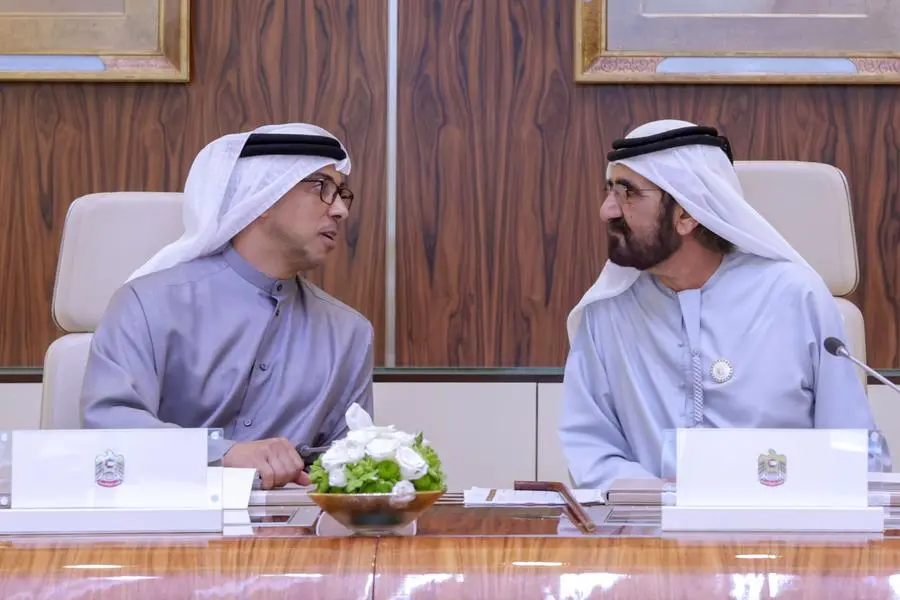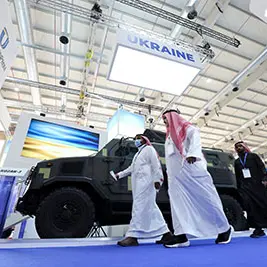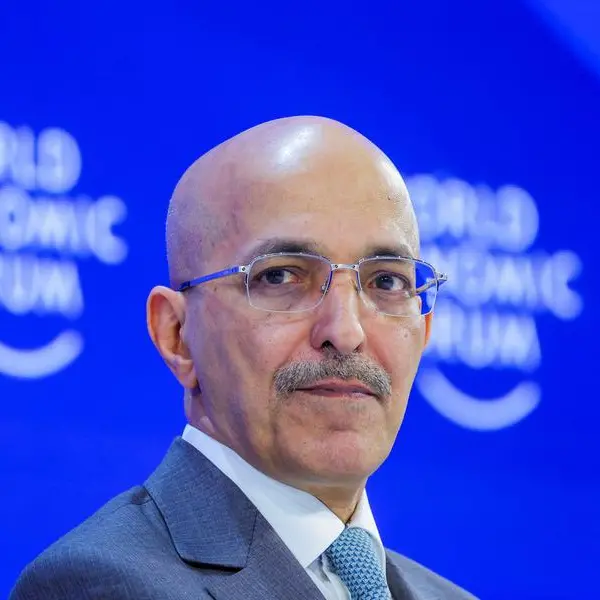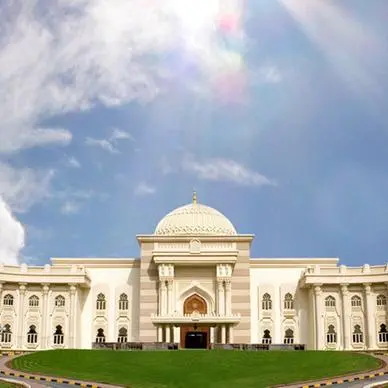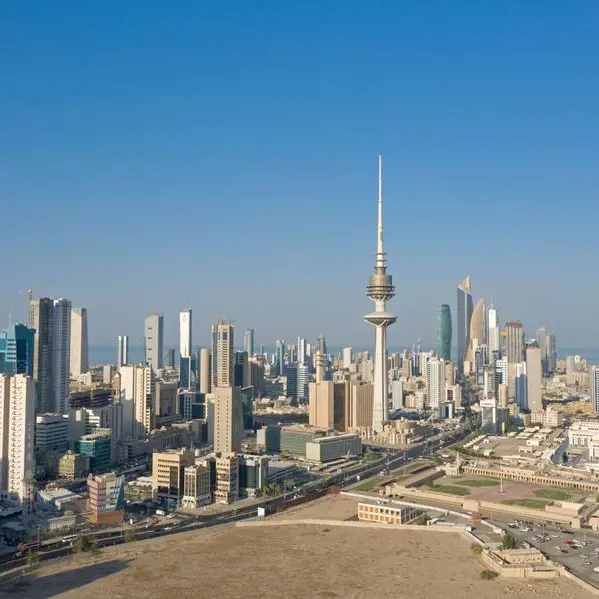PHOTO
ABU DHABI: His Highness Sheikh Mohammed bin Rashid Al Maktoum, Vice President, Prime Minister and Ruler of Dubai, chaired the UAE Cabinet meeting at Qasr Al Watan, Abu Dhabi, in the presence of His Highness Sheikh Mansour bin Zayed Al Nahyan, Vice President, Deputy Prime Minister and Chairman of the Presidential Court; H.H. Sheikh Maktoum bin Mohammed bin Rashid Al Maktoum, First Deputy Ruler of Dubai, Deputy Prime Minister and Minister of Finance, and H.H. Lt. General Sheikh Saif bin Zayed Al Nahyan, Deputy Prime Minister and Minister of the Interior.
His Highness Sheikh Mohammed bin Rashid Al Maktoum said, “Today, I chaired the UAE Cabinet meeting at Qasr Al Watan in Abu Dhabi. We reviewed the major advancements in the country’s labour market. The UAE has ranked first globally in the lack of labour disputes indicator, according to the Global Competitiveness Report, first globally in the ability to attracting talent, as indicated by the Prosperity Index, and third globally in the digital skills.”
His Highness Sheikh Mohammed bin Rashid Al Maktoum noted that over 7 million employees across all sectors in the UAE are benefiting from the Involuntary Loss of Employment scheme (ILOE), while 98.8 percent of the workforce in the country are covered by the Workers' Protection Programme.
His Highness added: “Today, we approved a new structure for the Ministry of Human Resources and Emiratisation, including establishing a coordinating council for the labour market in the UAE, to maintain its stability and enhance its competitiveness. The workforce is the real engine of the economy, and monitoring their concerns and protecting their rights are essential elements for advancing our national economy.
His Highness Sheikh Mohammed bin Rashid Al Maktoum further noted, “Also today, we reviewed the results of implementing the ‘Operation 300 Billion’ project launched in 2021, that aims to increase the industrial sector contribution to our GDP to AED300 billion, by the year 2031.
His Highness also highlighted the accomplishments of the industrial sector, noting that its current contribution stands at AED197 billion to the GDP, up from AED 132 billion. Since the launch of the ICV Programme, national spending has increased to AED67 billion in 2023.
His Highness Sheikh Mohammed bin Rashid added, “The advancement of the industrial sector is a national priority. We are overseeing its progress by providing a variety of incentives to stimulate its growth.
His Highness said, “The UAE Cabinet approved a national policy on biofuels encouraging the production and consumption of locally produced biofuels, and the amendments on the executive regulations of the federal law on citizenship and passports. We approved extending the validity period of the UAE passport from 5 to 10 years for Emiratis aged 21 and above. The new amendments include further facilitations and comprehensive digital services to be provided by the relevant authorities.”
His Highness said, “At today’s Cabinet meeting, we reviewed the accomplishments of the Digital Wellbeing Council for the year 2022. This council, in collaboration with various social media platforms, has successfully eliminated over 160,000 websites and accounts that targeted our youth, through promoting substance use and unfavorable habits that are foreign to our culture.”
His Highness concluded that the family serves as the strongest defense for our children. It is crucial to instill awareness in new generations. “We emphasise the importance of cooperation among families, media, and schools to safeguard our children, who are the most valuable asset of our nation.”
Accomplishments of the UAE industrial sector in 2023
The UAE Cabinet reviewed in its meeting the accomplishments of the industrial sector in the country during 2023. The sector has witnessed significant advancements in competitive indicators, including the country's ranking first regionally and 37th globally in the Frontier Technology Readiness Index. Additionally, the country ranked first in the Arab region and 29th globally in the Competitive Industrial Performance Index, as well as first regionally and 11th globally in the Quality Infrastructure for Sustainable Development Index report.
The contribution of the industrial sector to the GDP in 2023 amounted to AED 197 billion, reflecting a growth rate of 49 percent compared to 2020. Industrial exports reached around AED 187 billion in 2023, with a growth rate of 61 percent compared to 2020.
The sector of petrochemicals and metal products contributed 38 percent to the industrial value added in 2023. The metals, construction materials, food, and beverage sectors accounted for over 47 percent of the total industrial exports in 2023.
The ICV Programme saw a remarkable growth during 2023. The national spending reached AED67 billion, while the cumulative spending reached AED 237 billion, marking a 13-fold increase compared to approximately AED 18 billion at the programme's launch in 2018.
Around 1,400 products worth AED 120 billion can be locally manufactured during the next decade. Approximately AED 62 billion from the total purchase offers were secured through the 'Make it in the UAE' initiative.
The industrial sector received financial solutions worth AED5.3 billion, and credit solutions worth AED1.4 billion, along with customs exemptions valued at about AED 3 billion in 2023. The value of import substitution projects reached approximately AED 9 billion.
The Cabinet also approved the introduction of new consumption tiers for electricity services provided by the Federal Electricity and Water Authority (FEWA) in order to support the industrial sector.
National efforts to support labour market
The Cabinet was briefed on the collaborative efforts of the Ministry of Human Resources & Emiratisation, alongside various federal, local, and private entities, aimed at supporting labour market stability and addressing disputes across the UAE.
The initiatives and mechanisms implemented by the UAE government in 2023 led to a notable 75 percent reduction in labour disputes compared to 2022, while over 98 percent of labour disputes were amicably settled, up to March 2024. Additionally, the “Collective Labor Dispute Committee” successfully resolved disputes totaling over AED 300 million.
The Cabinet also reviewed the results of the implementation of the Involuntary Loss of Employment scheme during 2023, up to March 2024. Over 7.2 million employees from both private and federal government sectors subscribed to the Scheme by the end of 2023.
Health insurance system for private sector’s employees
During the meeting, the Cabinet approved the establishment of a health insurance system for registered employees in private sector, and the domestic workers who do not have existing health insurance coverage. According to the new system, employers in private sector companies along with employers of domestic workers in the UAE are required to pay for the health insurance coverage for their registered workers upon issuance or renewal of their residency permits.
This decision will be enforced mandatorily starting 1st January 2025. The Ministry of Human Resources and Emiratisation will be responsible for carrying out essential awareness campaigns and programs regarding this concern.
UAE economic sector achievements in 2023
The UAE economy has achieved distinguished accomplishments during 2023. The non-oil GDP in constant prices for the UAE, recorded a significant growth rate of 5.9 percent for the first nine months of 2023, compared to the same period in 2022.
The UAE has signed a total of 10 comprehensive economic partnership agreements (CEPA) with friendly countries worldwide.
The Cabinet reviewed the economic results and accomplishments achieved thanks to the joint efforts of the Economic Integration Committee, and the national Economic Development departments along with the relevant economic departments within the local governments. The accomplishments included accelerating the process of issuing and implementing economic legislation as well as the launch of remarkable projects and initiatives to consolidate the sustainability of the national robust economy and to enhance the investment-friendly ecosystem in the UAE.
These achievements included the development of the National Economic Register system, the issuance of 7 economy-related legislations, launching the Intellectual Property System, establishing an integrated system to receive consumers’ complains, creating a register of “misleading trade names”, supporting the ecosystem combating money laundering and combating the financing of terrorism, issuing a guide to local authorities regarding fines and penalties related to the commercial registry, and many other initiatives and projects enhancing the growth of commercial activities and business in the country.
UAE National Policy on Biofuels
The UAE Cabinet approved the National Policy on Biofuels aiming to develop regulations and controls to oversee the distribution of biofuels, establish standards governing the production and utilisation of biofuels and implement criteria and mandates for biofuel production within the country.
The National Policy on Biofuels also aims to organise the biofuel trading activities in the country, establish standardised specifications for biofuel, manage its production and trading, and contribute to environmental protection and public health, fostering sustainable development, and reducing the effects of climate change.
National Digital Accessibility Policy
The Cabinet approved the National Digital Accessibility Policy, aiming to support digital transformation and service efficiency in the country, ensuring digital inclusivity for all segments of society, including people of determination and the elderly.
The policy strives to ensure easy access to all digital products for people of determination and the elderly. It aims to empower them with efficient access to digital services while supporting government transitions to integrated digital platforms.
This includes prioritising services for these groups and leveraging modern technologies such as AI and digital transactions for enhanced inclusivity and efficiency of services.
Digital Wellbeing
The UAE Cabinet reviewed the activities and the accomplishments of the Digital Wellbeing Council, which is chaired by H.H. Lt. General Sheikh Saif bin Zayed Al Nahyan, Deputy Prime Minister and Minister of Interior. In coordination with relevant authorities, the Council blocked more than 2,700 websites that breached the nation's policies and regulations. These websites were engaged in a range of illicit activities such as online scams, phishing, unauthorised product promotion, and other societal violations.
Additionally, more than 160,000 inappropriate contents and accounts were removed from social media platforms.
These achievements resulted in a rise of confidence in internet security to 79.2 percent in 2022, and a decrease in the incidence of online bullying by 2.4 points in 2022 compared to 2020.
Establishing the Coordinating Council for Labour Market
The Cabinet approved establishing the ‘Coordinating Council for Labour Market’ in the UAE, chaired by the Minister of Human Resources and Emiratisation.
The Council will be responsible for reviewing legislations, strategies, and initiatives related to private sector companies, as well as their registered workforce. It will work on aligning federal and local regulations, laws, and procedures related to the labour market to achieve coordination and integration nationwide.
Additionally, the Cabinet approved the restructuring of the Emirates Tourism Council for a period of three years, chaired by Abdullah bin Touq Al Marri, Minister of Economy.
It approved also appointing Dr. Ahmad Belhoul Al Falasi, Chairman of the Board of Directors of the UAE Space Agency.
The Cabinet approved a decision to restructure the Board of Directors of the National Institute for Health Specialties, chaired by Dr. Ahmad Belhoul Al Falasi, Minister of Education.
Supporting the fire safety system “Hassantuk for Homes”
The meeting discussed the latest developments of the fire safety system “Hassantuk for Homes”. The Hasanatuk intelligent alarm system have been installed in 14,470 households receiving social assistance, at a total cost of AED 105.9 million.
The Cabinet approved the federal government covering the subscription expenses for both new and existing households. This aims to connect the fire detection systems in the homes of people receiving social assistance from the Ministry of Community Development with civil defense systems as part of the "Hassantuk" initiative.
This will be put into effect for a period of two years, awaiting the conclusion of required studies with relevant authorities and project implementing companies.
Governance Guide for Boards of Directors in Federal Government
The meeting also approved a resolution regarding the Governance Guide for Boards of Directors in the Federal Government. It includes updating the guide to align with global best practices in this field. The guide encompasses a set of provisions, standards, controls, and procedures aimed at enhancing the role of boards of directors in the federal government. The guide aims to clarify the roles, tasks, and duties of both the boards and their members, as well as their respective subcommittees.
The Guide serves as a comprehensive governance model and framework to regulate the relationship between boards of directors and relevant federal entities. it will be used as a reference for the varied activities of different boards of directors in the federal government subject to the provisions of this decision. This aims to enhance the quality and efficiency of the decision-making process and support the government sector to better serve people.
The meeting approved decisions regarding the executive regulations of Federal Decree-Law No. (43) of 2021 on the Commodities Subject to Non-Proliferation; and the executive regulations of Federal Decree-Law No. (22) of 2023 on badges and medals in the Federal Authority for Identity, Citizenship, Customs, and Port Security.
Among the UAE Cabinet decisions, is the approval of a number of procedures to deal with participants in the "Nafis" programme upon confirmed violations of Emiratisation. Additionally, the meeting approved the charter for the Emirates General Petroleum Corporation (Emarat), and adopting four updated technical regulations in Food, Agriculture, and Oil & Gas sectors.
The Cabinet also approved several decisions on the services provided by the Federal Authority for Identity, Citizenship, Customs, and Port Security, as well as the fees in the federal courts.
In government affairs, the Cabinet discussed requests submitted by the Federal National Council to discuss government policies regarding strengthening the knowledge-based economy, managing and sustaining endowments and Zakat funds, enhancing their societal role, further improving the efficiency of employees in the government sector, enhancing citizens’ participation in the education sector, and the government policy regarding technical education, vocational training and other aspects of government work.
Approving 6 international agreements
The UAE Cabinet approved 2 international agreements of comprehensive economic partnership with the governments Republic of Serbia and the Republic of Georgia, respectively. It also approved an agreement with the Czech Republic, to eliminate double taxation with regard to taxes on income and to prevent tax evasion and avoidance, and three agreements with the Socialist Republic of Vietnam, regarding the extradition of criminals and the transfer of convicted persons.
The Cabinet approved also the amendment to the International Bank for Reconstruction and Development (IBRD) agreement on the removal of loans and financing restrictions.
During the meeting, the Cabinet approved establishing an embassy in Guatemala City, Guatemala, and a consulate general in Edinburgh, Scotland.
The meeting also approved the hosting of six international conferences and events in the country, including: the International Conference of Military Medicine 2026; the annual meetings of the Arabian Peninsula Regional Program; the conference on the Implementation of the Early Cargo Targeting System; the Conference of Arab Ministers of Higher Education and Scientific Research; and the Annual Conference on Undergraduate Research on Applied Computing.
